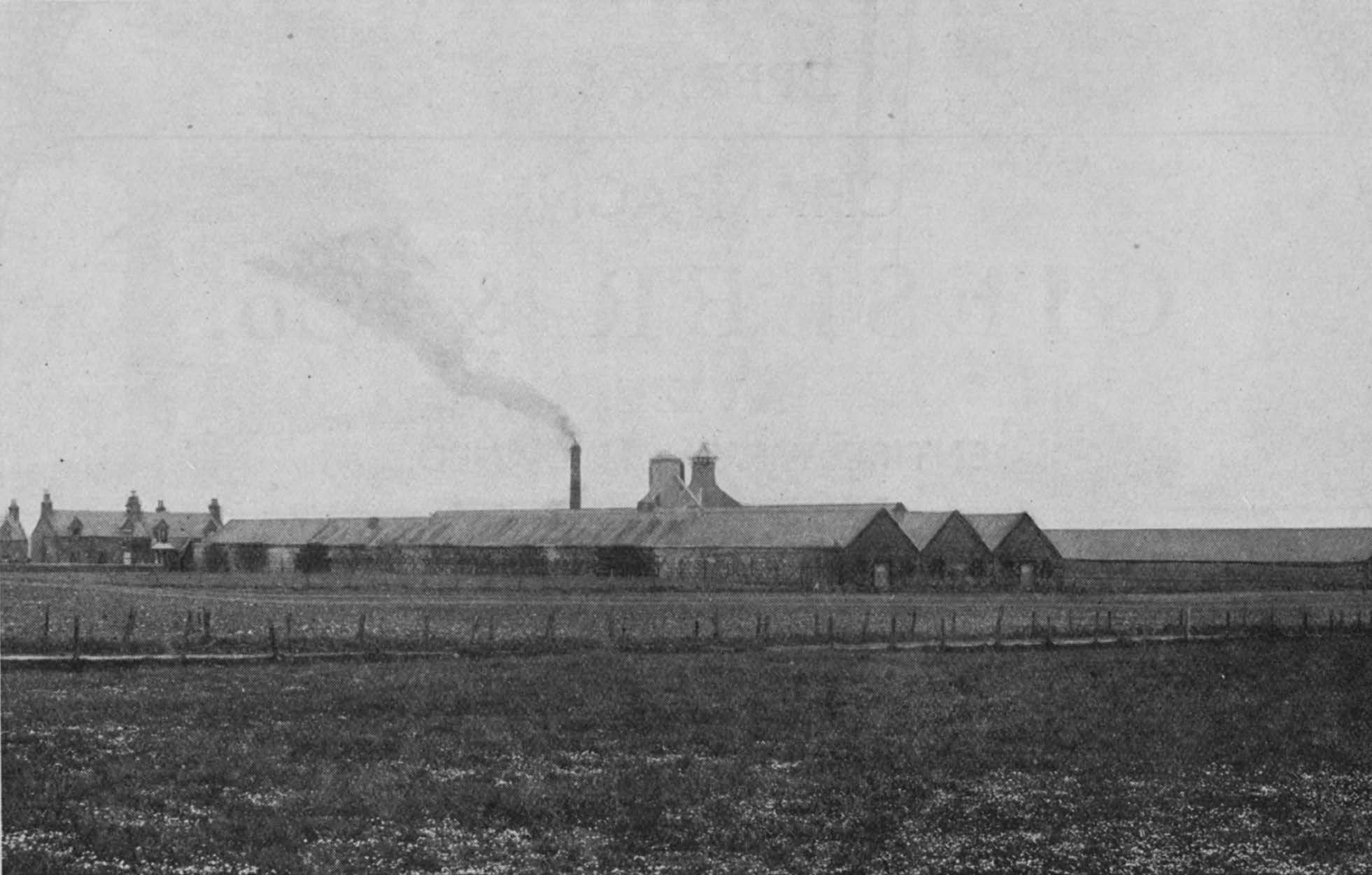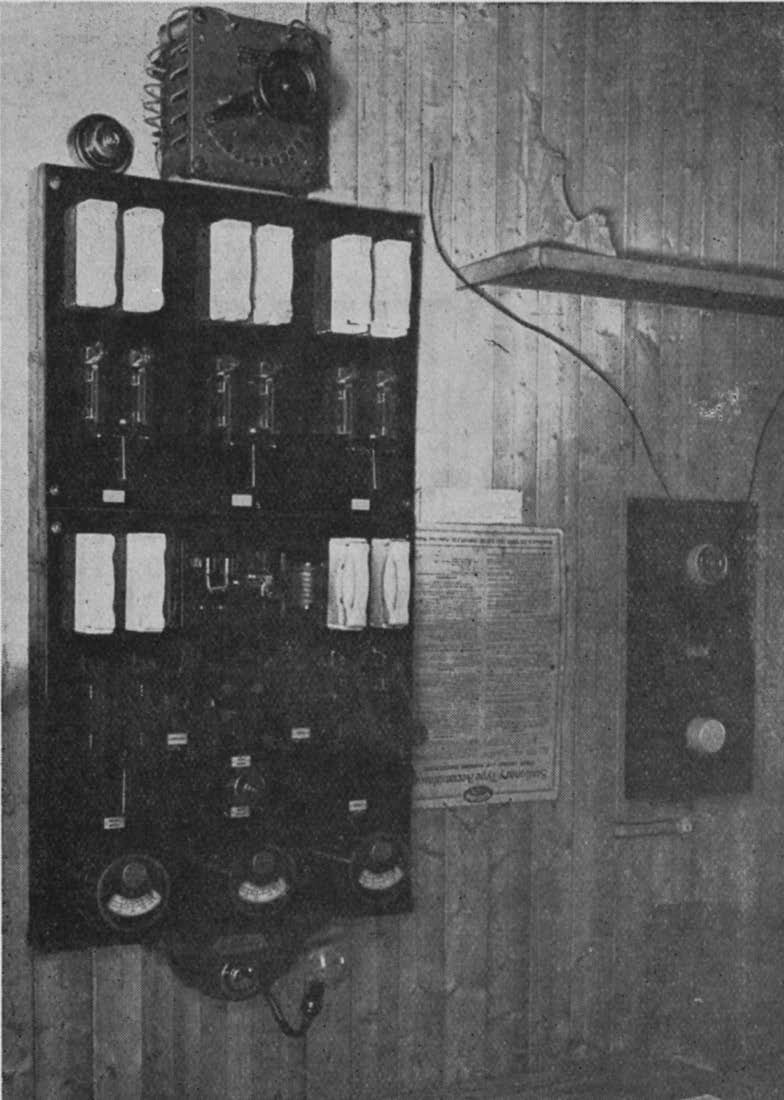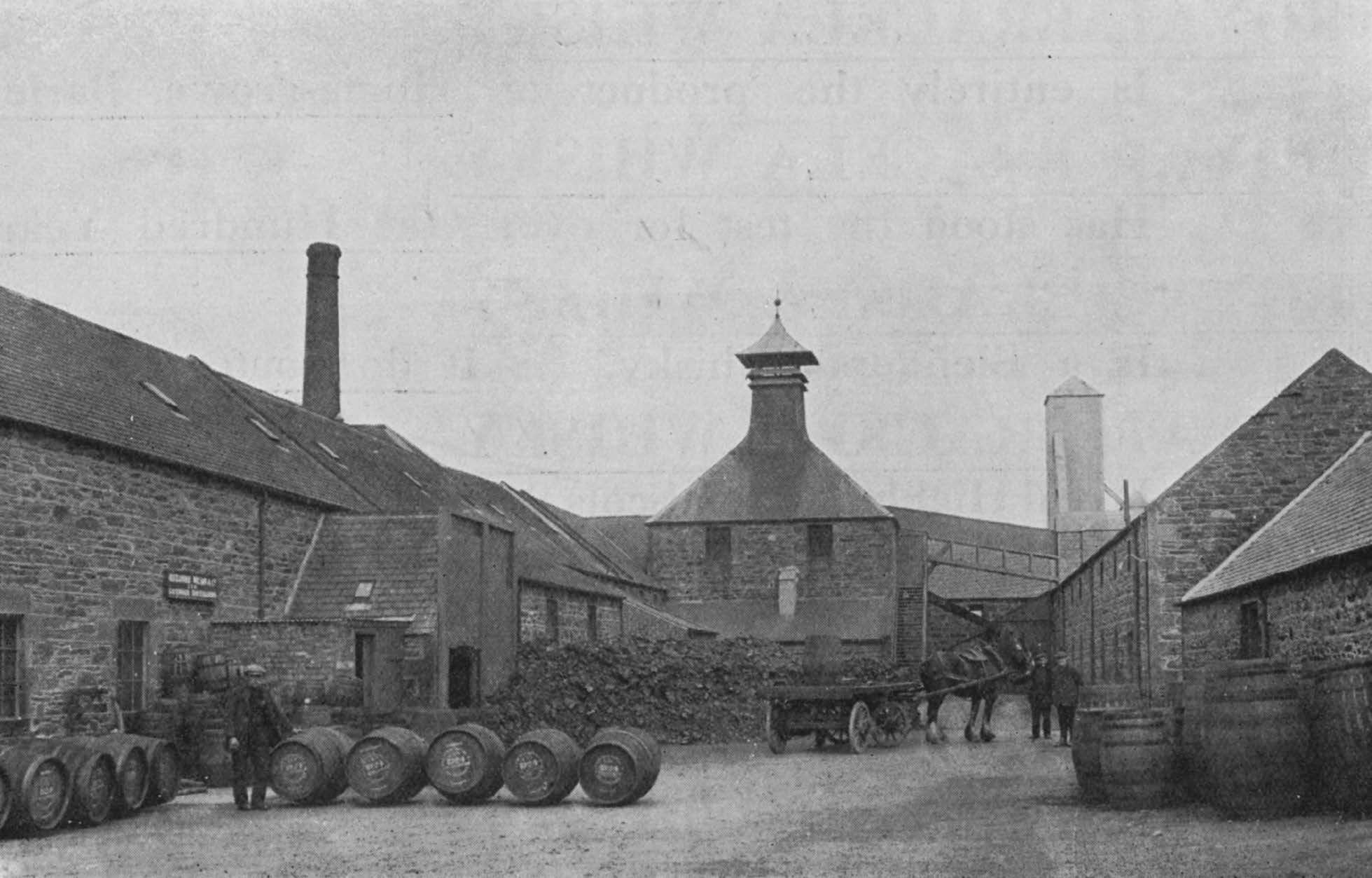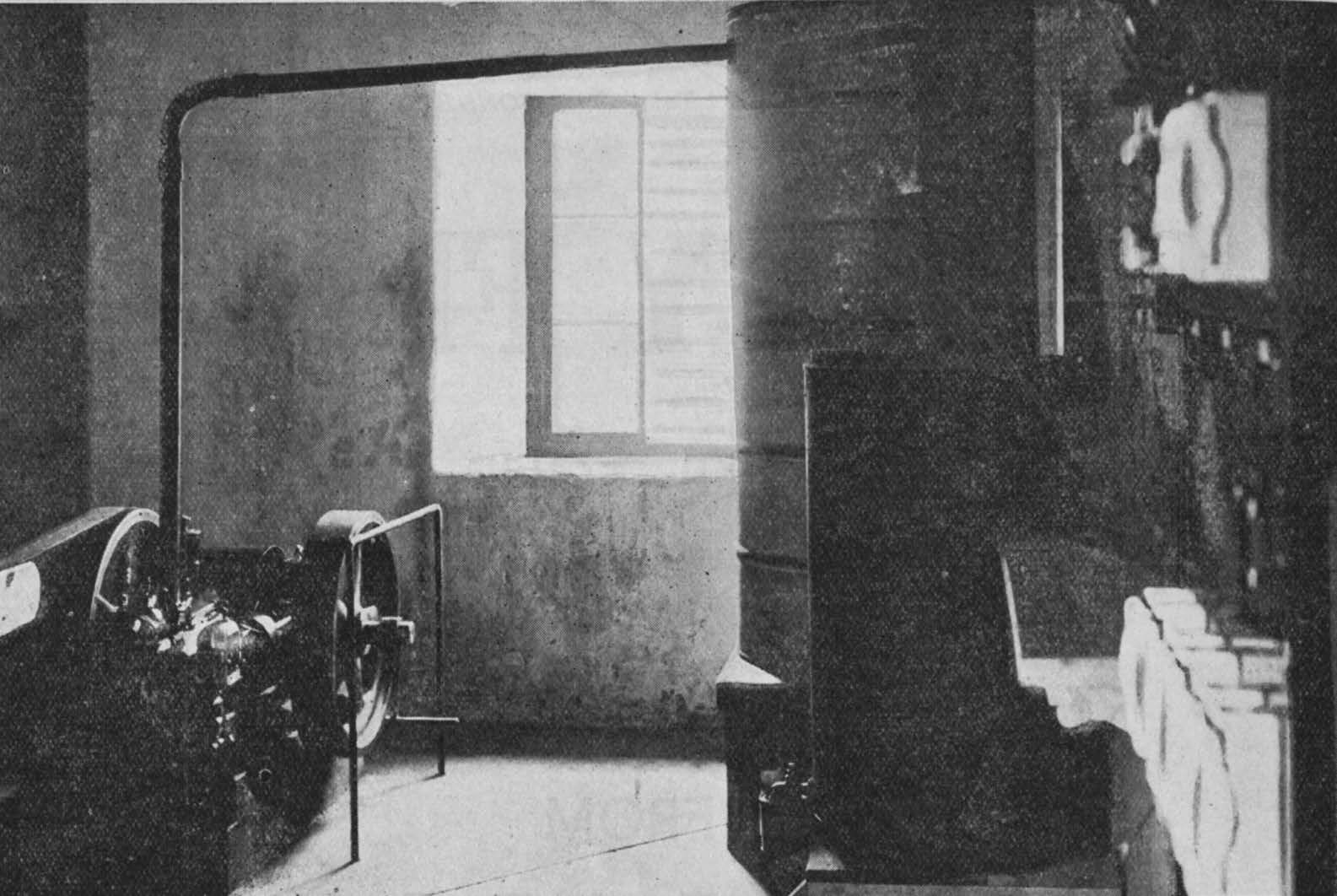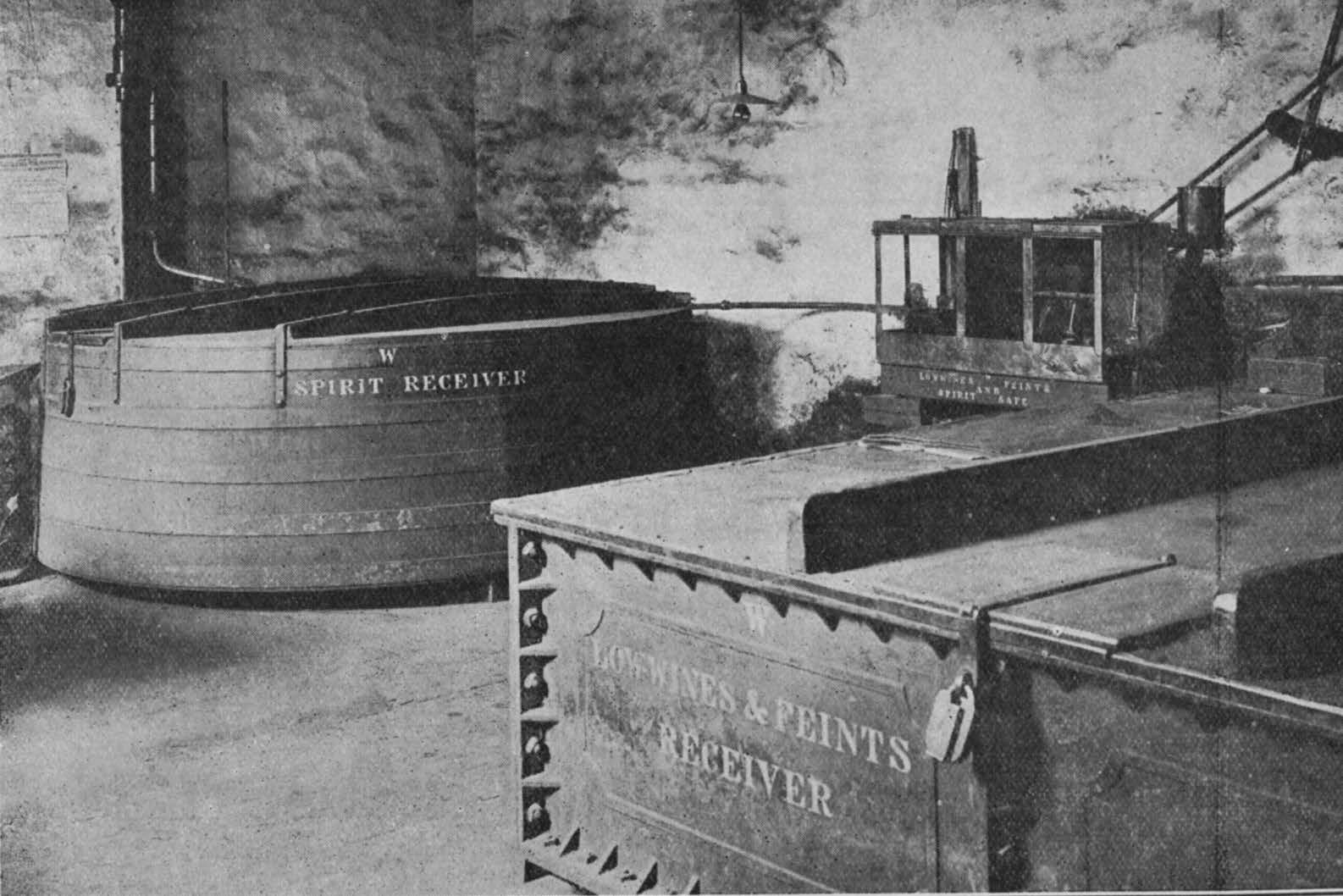LXXI
Inchgower Distillery, Near Buckie, Banffshire
February 14th, 1925
The well-known firm of Alexander Wilson and Company originated in the year 1822, when a grand-uncle of Mr. W. Wilson, the managing director of Inchgower, started business at Tochieneal Distillery. Tochieneal, long since demolished, stood some six miles from the site of the present distillery, which commenced working in the year 1872. Inchgower is thus one of the few private distilleries in the north still in possession of the families which founded them, and most of the employees can boast of long periods in the service of the firm. The brewer has been at Inchgower for nearly half a century, and a photograph taken recently shows a group of nine workmen whose individual service averages twenty-seven years. Such a record of employment obviously has an important bearing on the quality of the Whisky, whose excellence is scarcely surprising in view of the long experience of the staff.
Inchgower lies in a fertile stretch of country overlooking the fishing town of Buckie, and the shores of the Moray Firth. On high ground rising behind the premises stood the house of Sandy McPherson, a notorious smuggler who was seized by Excise officers early in the nineteenth century, while conveying several kegs of Whisky, concealed under trusses of straw in a cart, to the coast. Despite many threats from the judge who tried him, McPherson refused to reveal the source of the Whisky. Some months later, however, a large “bothie” was discovered in Aultmoor Glen, near McPherson’s home. A pure accident disclosed the position of the illicit distillery, which had been worked in a cavity on the slope of a neighbouring hill, and cunningly concealed with a clever camouflage of turf and heather. Driving home a herd of Highland cattle one day, a farmer noticed an animal straying from the path. Suddenly the beast disappeared from view, and a moment later three dishevelled men sprang out of the heather as though by magic and ran away at terrific speed. In a flash the farmer realised what had happened, and doubtless thinking of the reward offered at the time of McPherson’s arrest, immediately gave chase. The smugglers soon out-distanced him, however, and he returned to the spot to extricate his animal from an entanglement of overturned stills, worm tubs and other apparatus.
McPherson and his friends probably used water from the springs on Park Hill that now supply Inchgower. Spring water is collected on the premises in a tank holding twenty thousand gallons. Banffshire barley, grown on neighbouring farms, is mainly used for malting, and no foreign barley has ever been used since the firm was founded. The grain lofts, containing three thirty-quarter steeps, and three germinating floors, afford extensive accommodation for the work of this department. Drying of malt is done in a kiln nearly thirty feet square, with furnace automatically controlled by a King’s patent regulator. Perforated plates form the drying surface. Malt is ground in a two-roller mill that has been in constant use for forty years, and still gives excellent service.
Eleven hundred bushels are mashed weekly in a tun fitted with sparge rod. Water for mashing is pumped into two heating tanks, and brought to the required temperature by steam raised in a boiler capable of 80 lbs. pressure, supplied by Messrs. Penman and Co., of Glasgow. The main driving power is derived from an Abernethy horizontal steam engine installed in the year 1872, and worked continuously from that date. Electricity for the entire premises is generated by an “Ediswan” dynamo driven by a Crossley oil engine.
Among the remainder of the apparatus are six backs for fermentation, and two stills, the wash-still being of 3,000 gallons’ capacity. In place of the usual worm tubs, there is an open cooling tank containing nearly four hundred feet of worm. The firm maintain a racking store, and warehouses capable of holding, roughly, six thousand hogsheads of Whisky.
With regard to by-products and effluent, draff is sold wet to dairy farmers and burned Ale spread on arable land in the vicinity.
The Scottish agents for Messrs. Wilson are Messrs. Wm. Walker and Co., 141, West George Street, Glasgow, and the London agent is Mr. Hugh Mackenzie, of 59, Mark Lane, E.C. 3.
Images © The British Library Board
